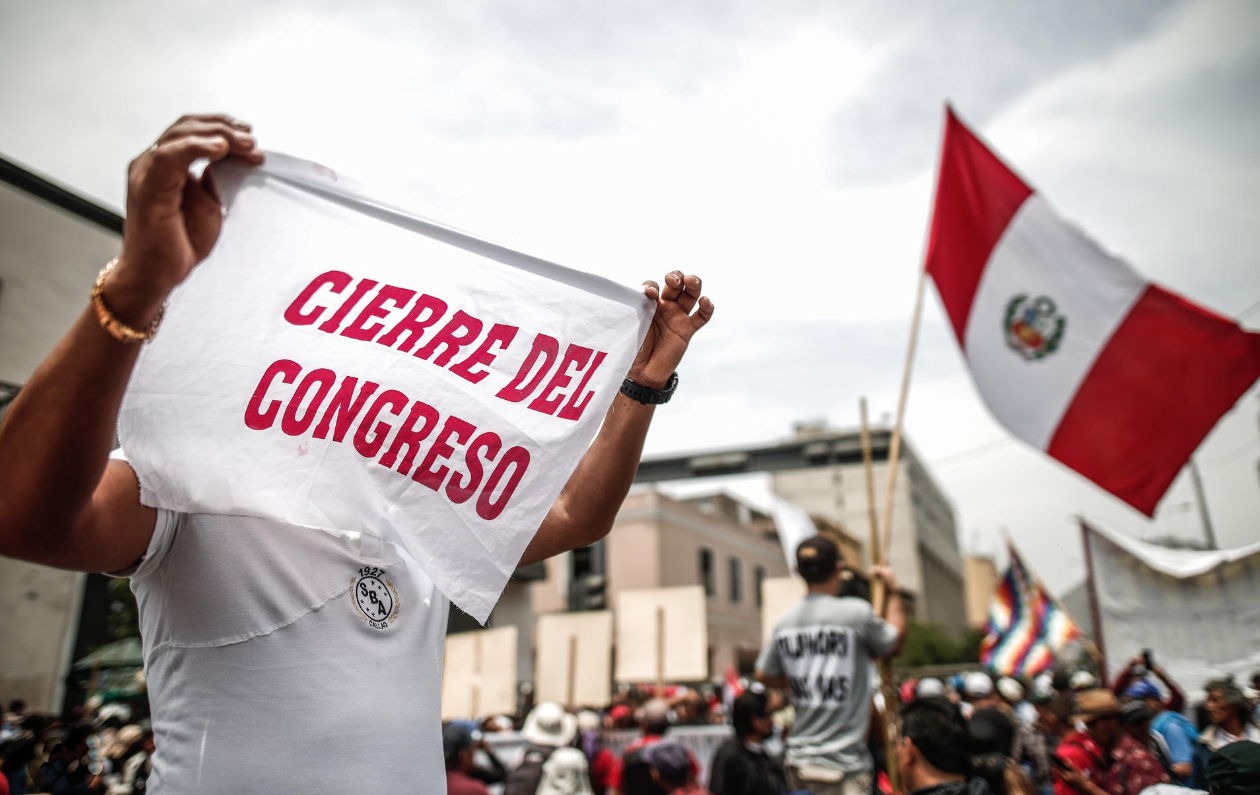The coup attempt on Wednesday, December 7 lasted two hours. Pedro Castillo’s flight to the Mexican Embassy led him to prison. The succession to the Presidency of the Republic was carried out immediately and the provisions of the Constitution were punctually respected.
On the other hand, a new figure appears in charge of the Executive Power, for the first time a woman, it has been pointed out, but the same cast remains in Congress, which in November had only 18% of the citizens’ approval. Beyond the details of the sad episode of Wednesday 7, it is of concern to know if the political panorama of the country will be different from now on or if it will continue to be mired in quarrels and maneuvers, bribes and support purchases, exalted speeches, and no achievements.
Of course, in the recent events in Peru, there are elements to be highlighted. The first is that Castillo’s attempted self-coup was quickly resolved, without causing any deaths or injuries that day. The second is that the response of the institutions was immediate, forceful, and unanimous in its rejection of the coup. The president of the Supreme Court, the president of the Constitutional Court, the Office of the Ombudsman, and a long list of institutional representatives came to the forefront. In this way, they not only answered Castillo’s clumsy stab in the dark but, what is of the utmost importance, they narrowed to a minimum the possibilities of support for him.
The latter is perhaps related to the expected pronouncement of the armed forces (and police), which some outdated editorials continued to call “tutelary institutions”, which took much longer to be known than the civilian institutional voices. Finally, the military and police declared their adherence to the Constitution. The failure of the coup was sealed.
More than one failure
Pedro Castillo had committed the last of his long chain of errors during his 16 months in office. With his fall, ended a government that called itself leftist and belonged to its illiberal, rather reactionary sector. This government was lucidly represented by that personage who raised Castillo in the presidential candidacy because he himself could not be a candidate for having been convicted of corruption: Vladimir Cerrón, a doctor professionally and politically trained in Cuba, where he lived for more than a decade. With the failure of Castillo’s government, the possibilities in the political competition of the leftists who supported him in spite of his performance were canceled indefinitely.
With this outcome, the role played by the OAS in the political crisis in Peru was also left as an ungrateful memory. The report prepared by the OAS mission, which visited the country days before Castillo announced his self-coup, seemed tailor-made for the former president’s need to obtain on the international level support that was increasingly scarce in the country. It is known that in the corridors of Washington, Secretary General Luis Almagro encouraged the vote in favor of the report, making his own the phantasm raised at that time by the Castillo government: democracy in Peru was threatened by a coup d’état in progress, led by Fujimorism and in which the institutions of justice and the media were participating.
The generalized rejection of the governmental maneuver via OAS-Almagro, with which the report was received in Peru, preceded the final blow given by Castillo himself, declared in favor of political dialogue, when he announced the dissolution of the Congress and the intervention in all the institutions of justice. The OAS has added one more failure to a record of few successes, which would suggest an examination of conscience about the decisions adopted by the institution in the Peruvian case.
An uncertain panorama
Dina Boluarte is a 60-year-old lawyer who was born in a poor highland province of Peru. She was an official of a public entity (Reniec), in charge of citizen documentation, which is respected for the efficiency of its operation. She resigned from her position in April 2021 upon being elected in Castillo’s presidential formula, and served as a minister in his government for 16 months, until the end of November 2022. Shortly thereafter, on December 5, Congress exonerated her of responsibility for an inconsequential regulatory violation, a sign that she was being groomed to replace the then president. On Wednesday, December 7, she became the sixth person in six years to assume the Presidency of the Republic.
Just a year before Castillo attempted the self-coup and failed, making way for Boluarte to assume the position to replace him, the current president publicly declared, given the first parliamentary attempt to remove Castillo from the Presidency, that if he resigned, she would also leave the position of vice president. At the end of January, when relations between Castillo and Peru Libre, the party that brought them both as candidates, had already soured, Boluarte declared in an interview that she did not share the ideology of Peru Libre. In allusion to the lack of internal democracy in the party headed by Vladimir Cerrón, she declared to be: “from the democratic left, not totalitarian, nor sectarian, that allows divergence and criticism and where there are no infallible or untouchable leaders”.
Who, then, is Dina Boluarte? It is not easy to give an answer now, just as it was not easy in the case of Castillo when he took office. In her inauguration ceremony, she stated, in an unusual way, that she was taking the oath of office “until July 26, 2026”. With this addition to his oath, she ruled out one of the demands that have been raised in the country and that even has the favorable opinion of a congressional commission: to bring forward the general elections. Although Boluarte’s claim had full legal basis, two days later it began to backtrack and, due to different demonstrations in the countryside, which have caused several deaths and led the Government to declare a state of emergency in some provinces, the President announced this Monday, December 12, in the early hours of the morning that she endorsed the project for the Congress to advance the elections to April 2024. Within two weeks, the president had given up two years in office.
In these shifting sands, the question is how long the new government can last. “The Peruvian crisis has not come to an end with the presidential succession”, is the sentence that on Friday, December 9, begins the editorial column of one of the main newspapers in Lima. The biggest political challenge for President Boluarte is to formulate a plan with clear objectives, which she does not seem to have, and to navigate with a Congress in which, like Castillo, she does not have a majority of her own and in which fractures produces unstable alliances, frequently fed by the defense and promotion of particular interests that capture the parliamentarians. The demonstrations of these days in different parts of the country are not so much in defense of Castillo, but rather to demand that the current congressional cast cease and that a general election should be held.
Boluarte is trying to weather the storm by changing positions as the wind blows, after having appointed her first ministerial cabinet. It is a group of professionals with experience in public management, most of them without political background. It is headed by Pedro Angulo, a former prosecutor and former dean of the Lima Bar Association, whose political ambition was known when he was a candidate for Congress, but was not elected; in 2021 he announced his presidential candidacy, but failed to register it. The new Prime Minister accumulates 13 investigations in the Public Prosecutor’s Office and has three complaints of sexual harassment.
While the now unpredictable political course is being defined, the country’s major problems are still waiting to be addressed. A public health system that resulted in Peru having the highest number of deaths in the world in relation to its population as a result of the COVID-19 pandemic. An economy with good macroeconomic indexes, but which only provides jobs in regular conditions to one out of every four workers. An educational system of terrible quality, whose problems have been aggravated by the pandemic. The agricultural sector is seeing a drastic reduction in its production, due to the shortage of fertilizers that the Castillo government did not know how to solve, placing the country at the highest level in South America in terms of food insecurity, as indicated by the UN in November. This is an urgent agenda that does not find a stable political framework to face it.
*Translated from Spanish by Janaína Ruviaro da Silva












